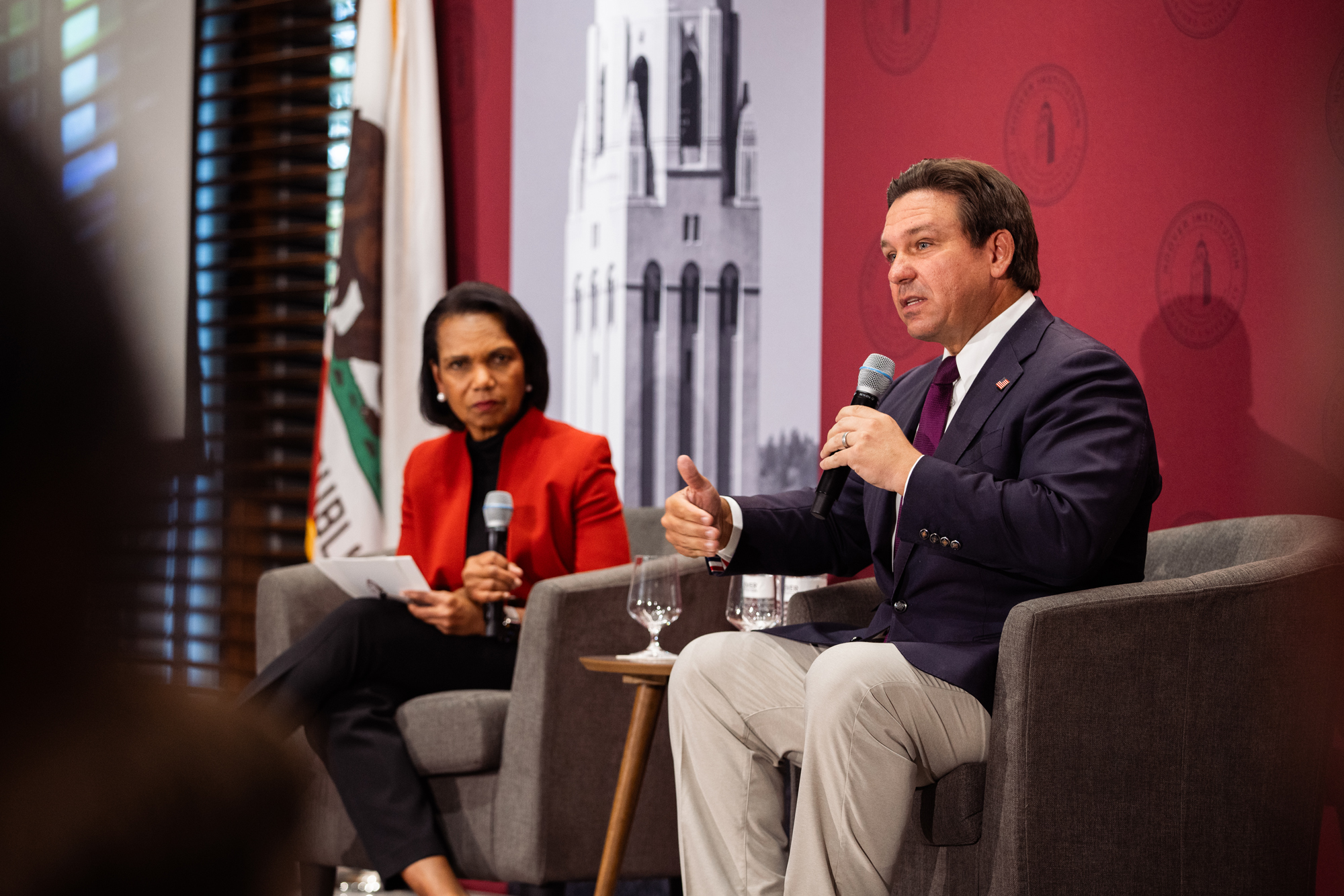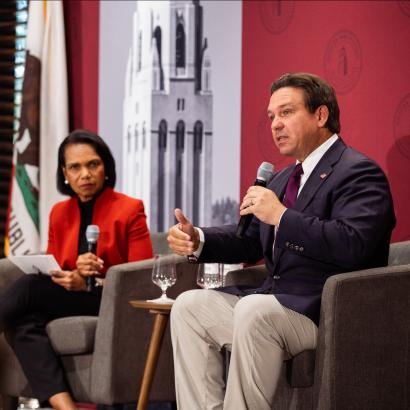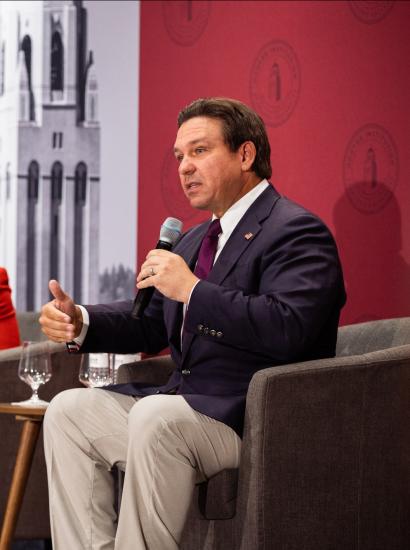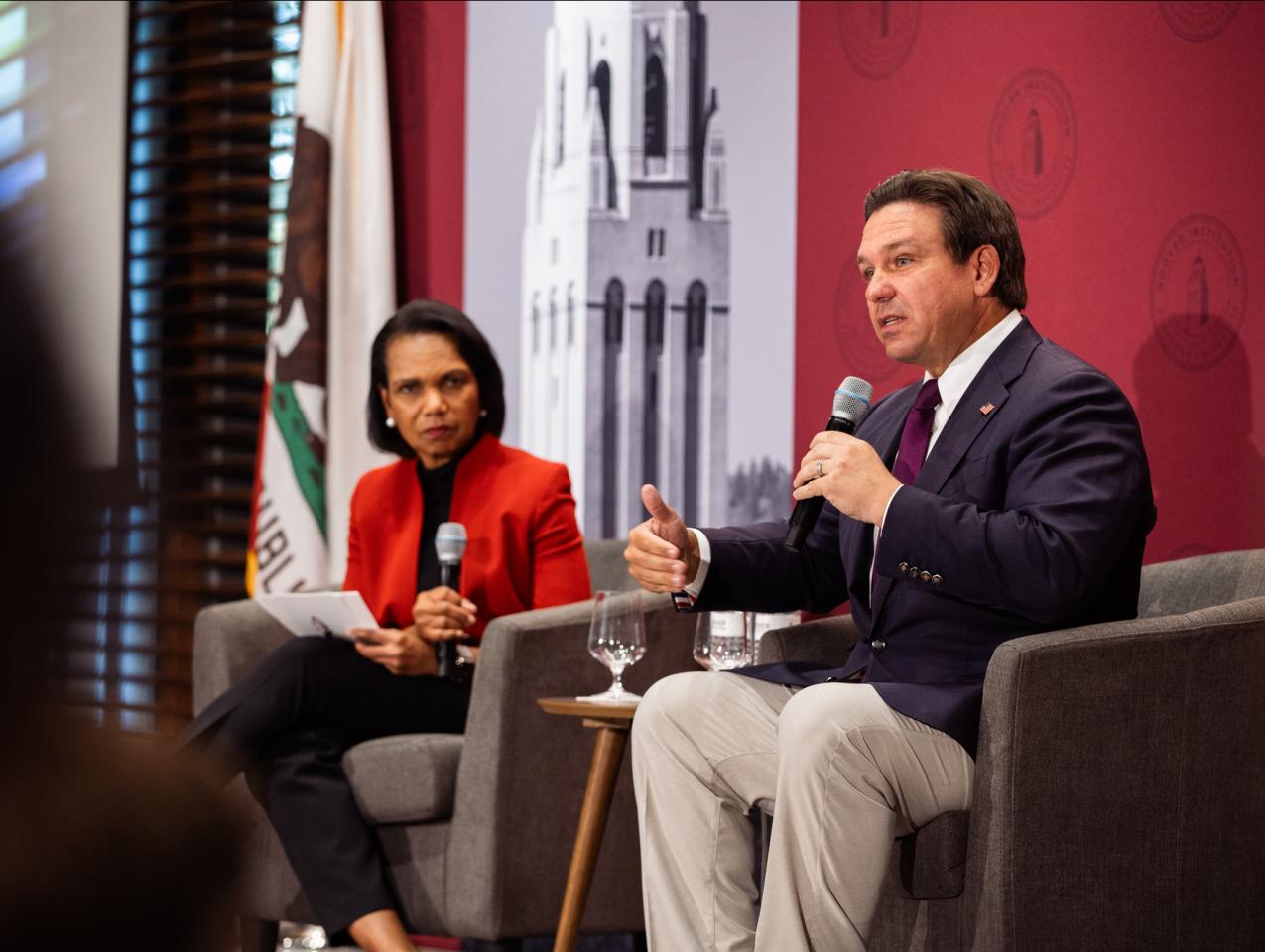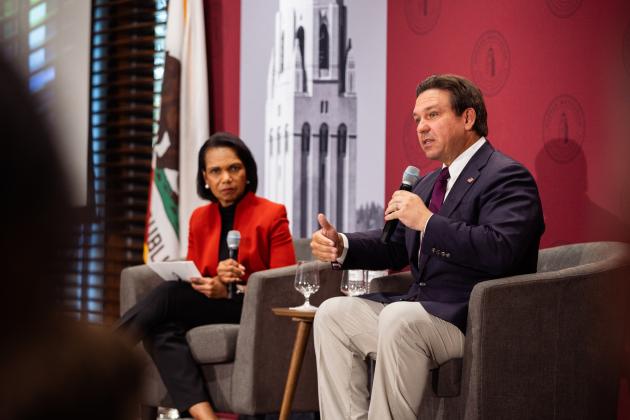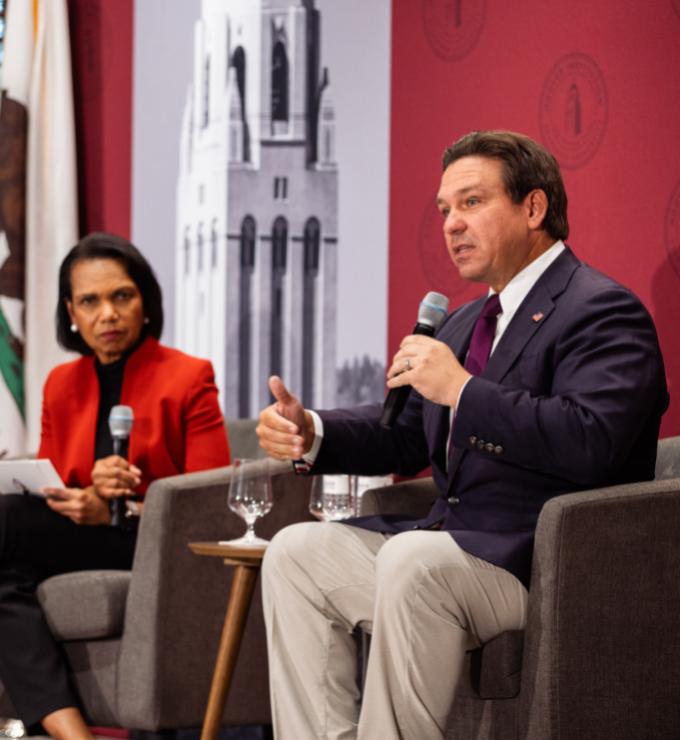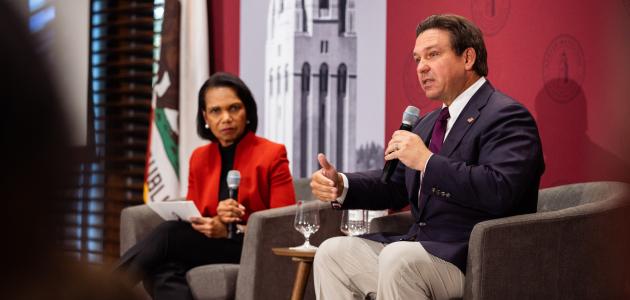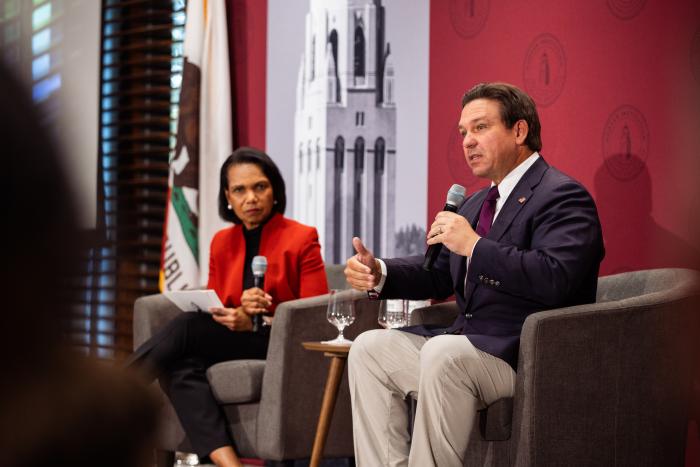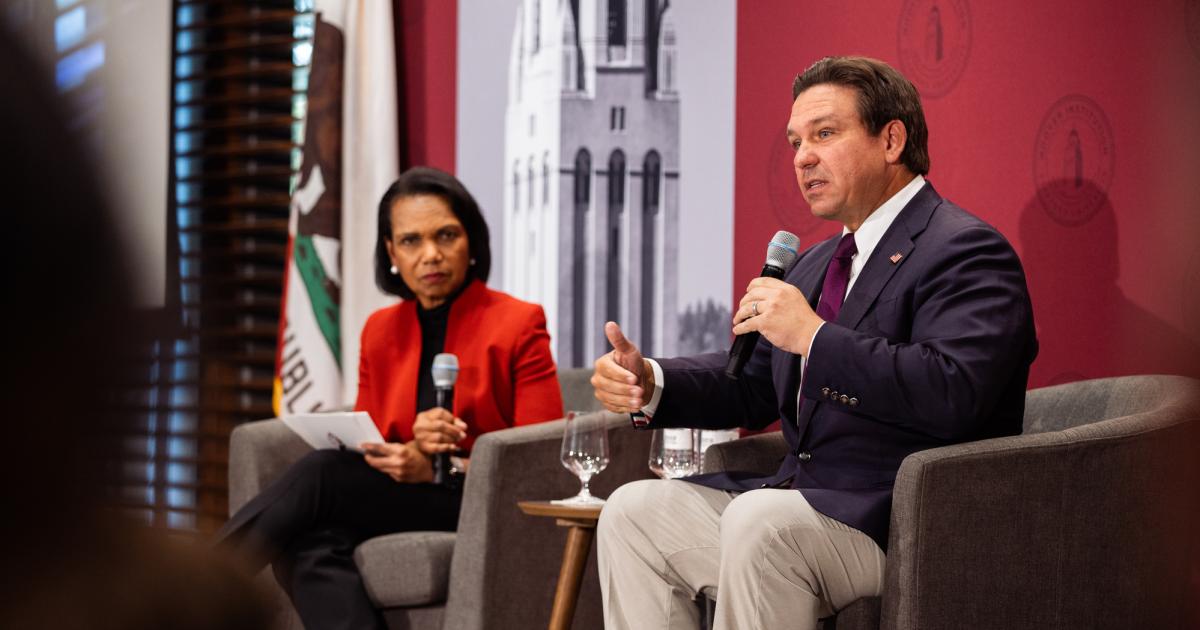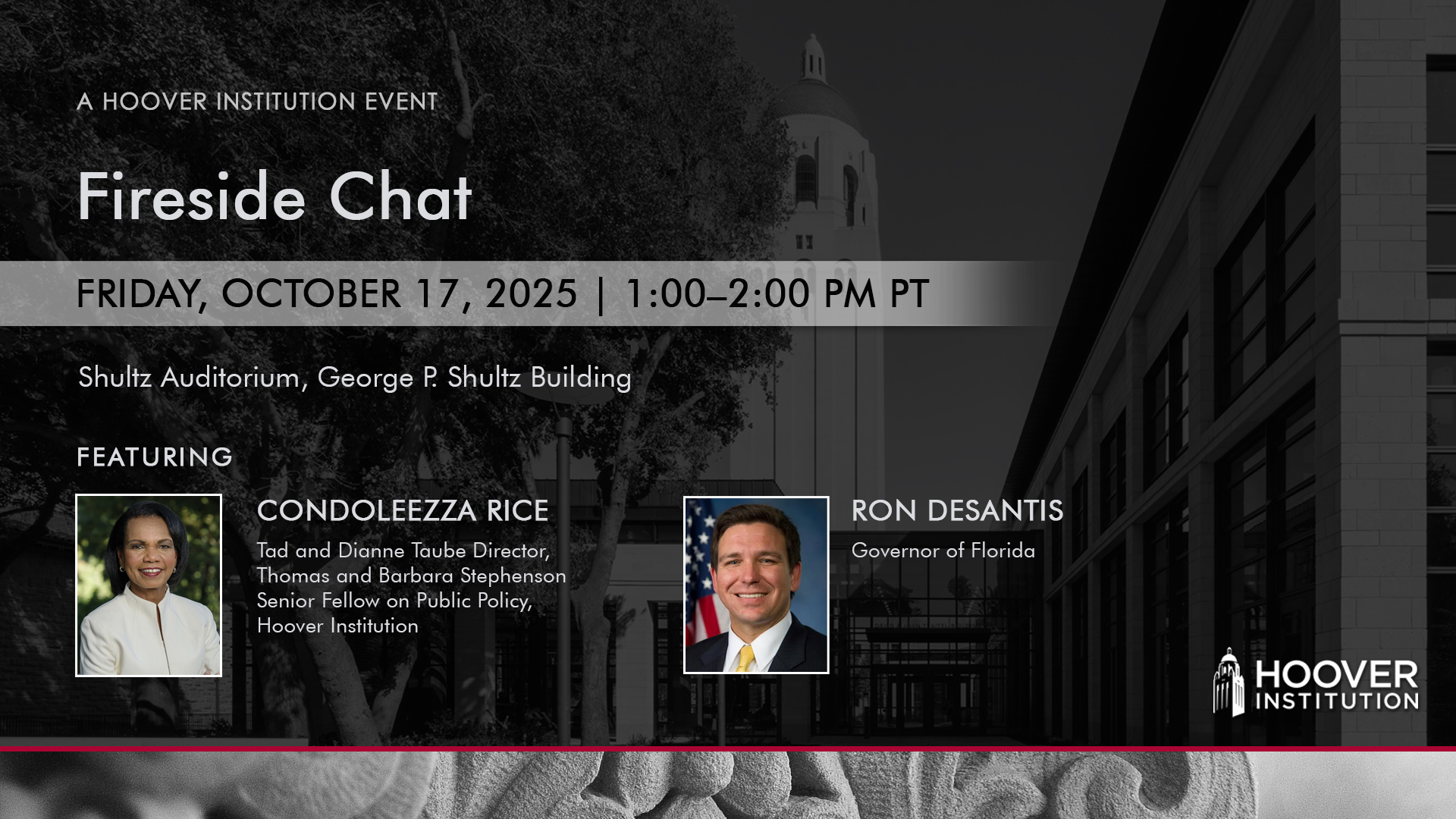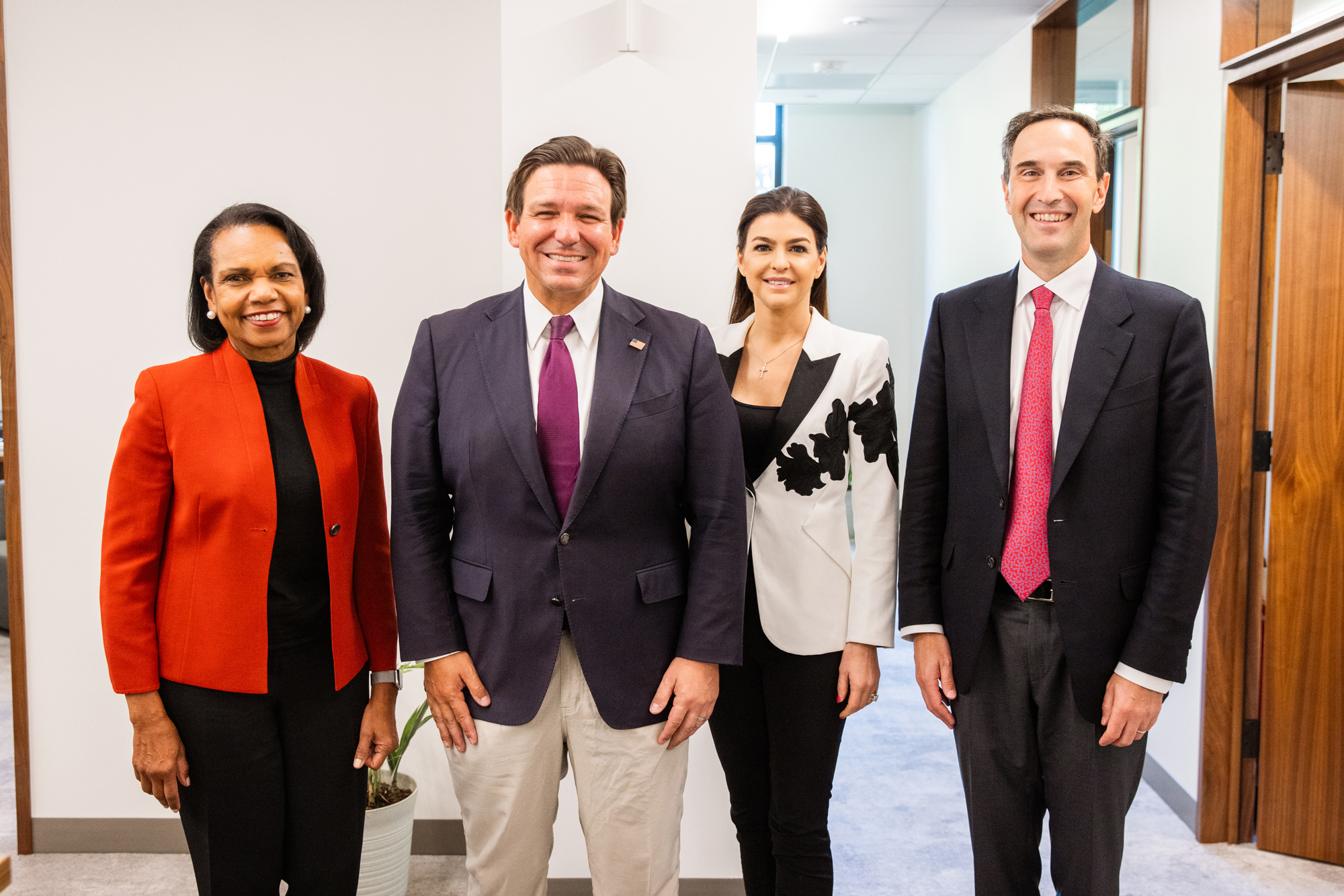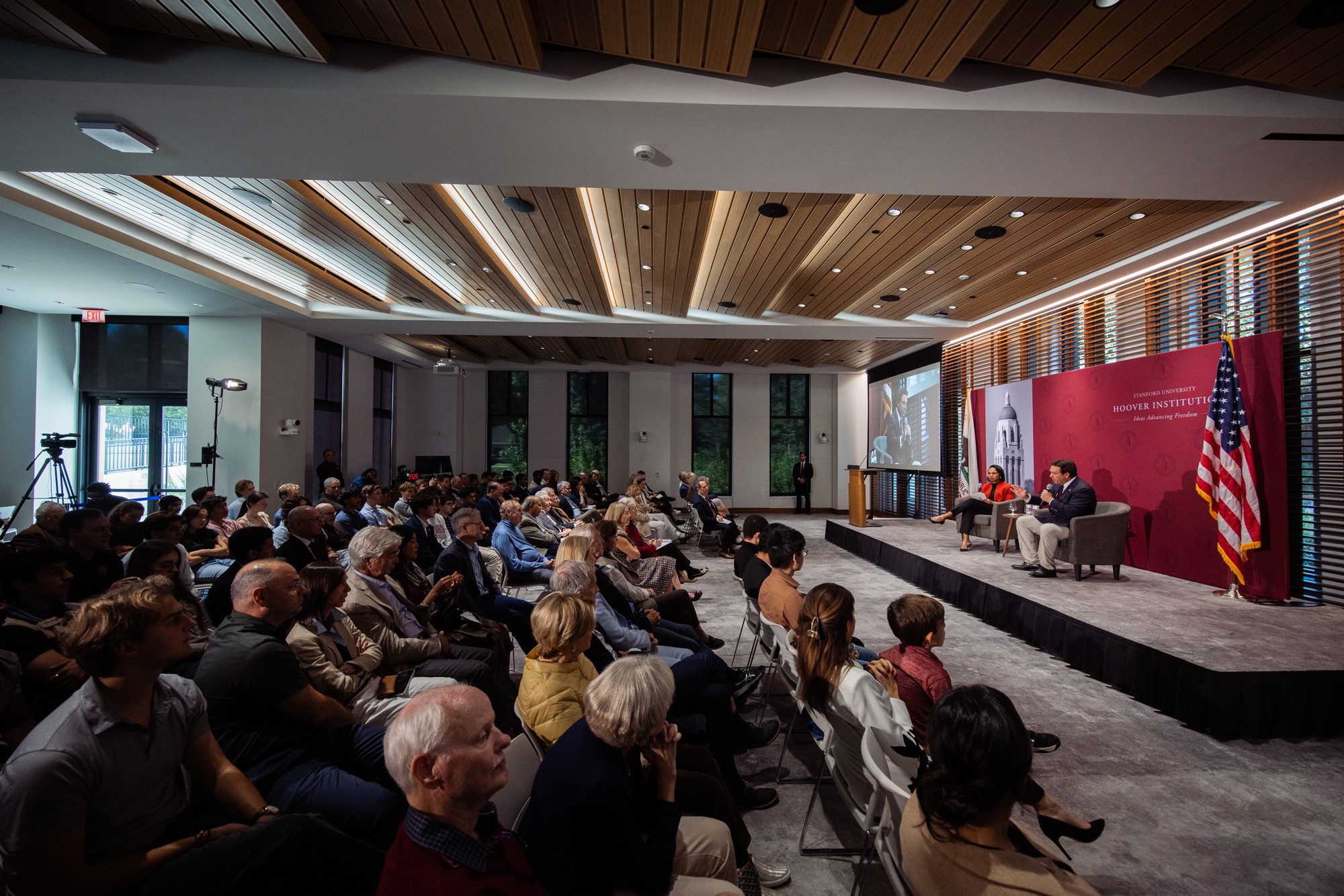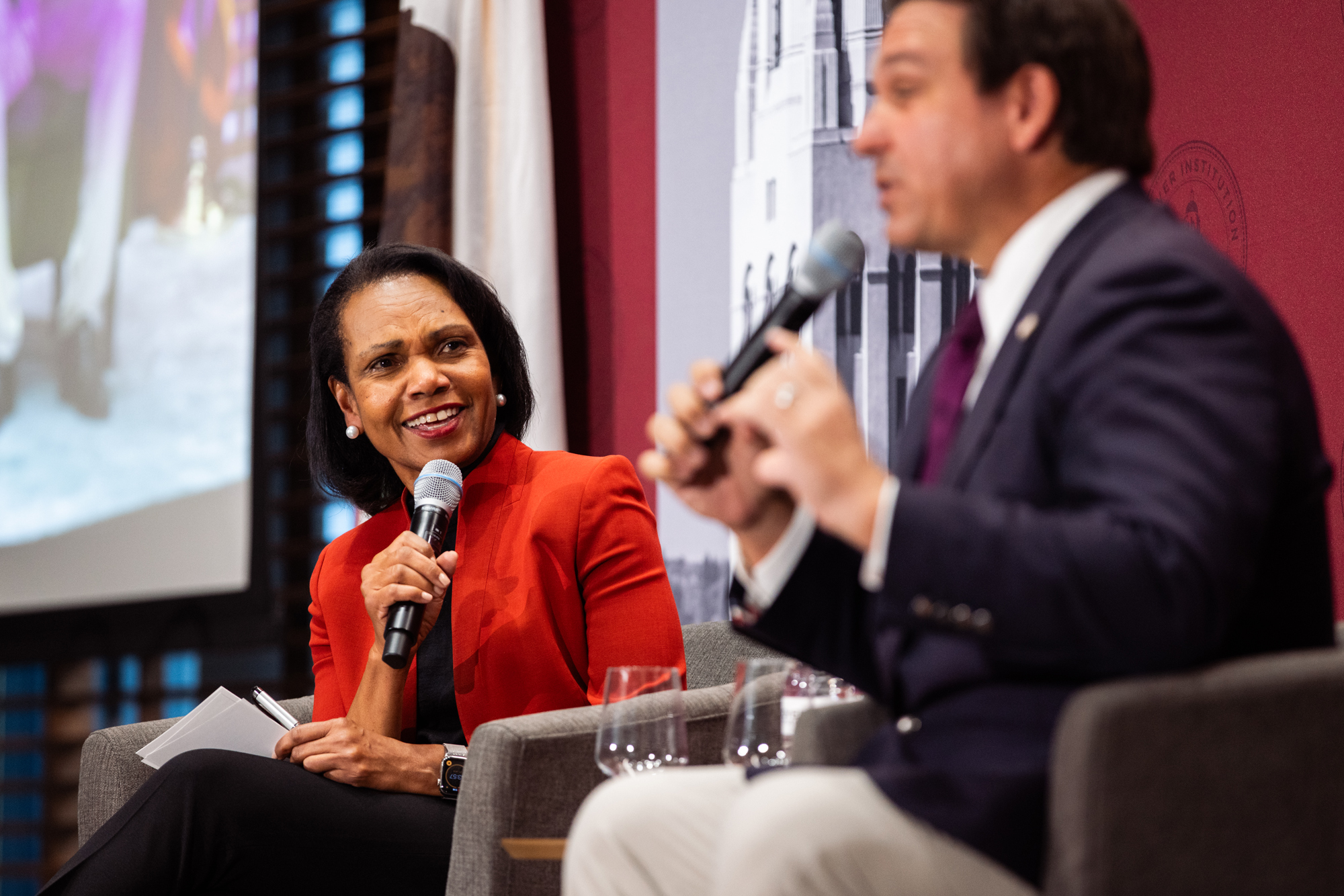Hoover Institution (Stanford, CA)—Florida Governor Ron DeSantis discussed pressing policy issues during a Hoover Institution visit on October 17, before speaking to the wider Stanford community about his vision for the future of his state.
DeSantis and his wife Casey discussed matters including economics, state and local policy, healthcare, and K–12 education with a number of leading Hoover fellows.
Later, during a public Q&A session hosted by Hoover Institution Director Condoleezza Rice, DeSantis spoke of how his state has seen millions of Americans move there in the past six years.
Since his election as governor in 2019, DeSantis said his core approach has been to keep pace with the enormous infrastructure and services demand brought about by millions of Americans moving to Florida since the start of the COVID-19 pandemic.
Rice asked DeSantis about his views as the United States prepares to mark the 250th anniversary of its founding.
DeSantis emphasized that the proof of his governance formula winning is how many people are flocking to live in his state.
“So many people have moved to Florida—it’s a testament that people have voted with their feet, but at the same time, we strive to be faithful to the ideals the founders established,” DeSantis told Rice.
As governor, DeSantis’s approach during COVID was to keep schools and other private enterprises open as much and as early as possible. According to DeSantis, this, along with the state’s lack of an income tax, spurred residents of other states to move.
“We’ve had a decade’s worth of [population] growth in a three-year period,” DeSantis said. The state’s population is expected to hit 24 million by 2026, up from 21 million when the governor took office.
But all that growth has pushed DeSantis to focus heavily on making sure there are enough roads, schools, and other public services and infrastructure to keep up with the state’s population growth.
In that vein, DeSantis said they’ve allocated any budget surplus they’ve enjoyed in the past several years to these areas, and redrawn capital plans to bring projects to shovel-ready status sooner.
“We’re moving projects from the 2030s to now,” DeSantis said. “That’s just to keep up. And we’ve had to build a lot more schools.”
Asked by Rice about his approach to subjects like healthcare and education, DeSantis indicated his style is to take on orthodoxy, such as when the state mandated a ban on cell phone use in school classrooms in July 2023.
“I was one of the first ones to advance this,” DeSantis said. “The New York Times said it was fascism, but now everyone is doing it.”
On welfare availability in the state, DeSantis spoke of his Hope Florida program, which connects people eligible for state assistance to local charities and faith groups, to secure help outside of state programs.
He said Hope Florida has diverted 33 thousand people away from reliance on state welfare and other programs since it was established.
Rice also asked DeSantis about his views on healthcare.
DeSantis told the audience the solution will involve offering price incentives for individuals to pick less costly healthcare plans, and a realization that most working-age individuals are likely over-insured in the current US system.
“Most people under 50, what they need is a catastrophic plan that’s affordable and they can pay what they’re doing otherwise out of [a healthcare savings account],” DeSantis said.
Rice then asked DeSantis of his view on immigration, as the national approach to enforcing migration rules has tightened in recent months.
She asked of his thoughts as all the way back to the time of Alexander Hamilton (born in what is now St. Kitts and Nevis), the United States has benefited from the efforts of its migrants.
DeSantis replied that in his state, no community is more in favor of immigration enforcement today than Latino communities themselves.
“Every single time [the media] polled it, the number one demographic in Florida
that supported what we did were the Hispanic Floridians. [They] wanted to make sure that the rule of law was upheld.”
Moving on to her role as a patron of Stanford’s men’s football team, Rice asked DeSantis to predict what would happen during the October 18 game between the Stanford Cardinal and the Florida State Seminoles.
DeSantis deferred to his son Mason, who briefly came on stage to predict a final score of 28–21 for Florida State.
Sadly, Mason’s prediction did not come true.
Stanford prevailed by a score of 20–13.







